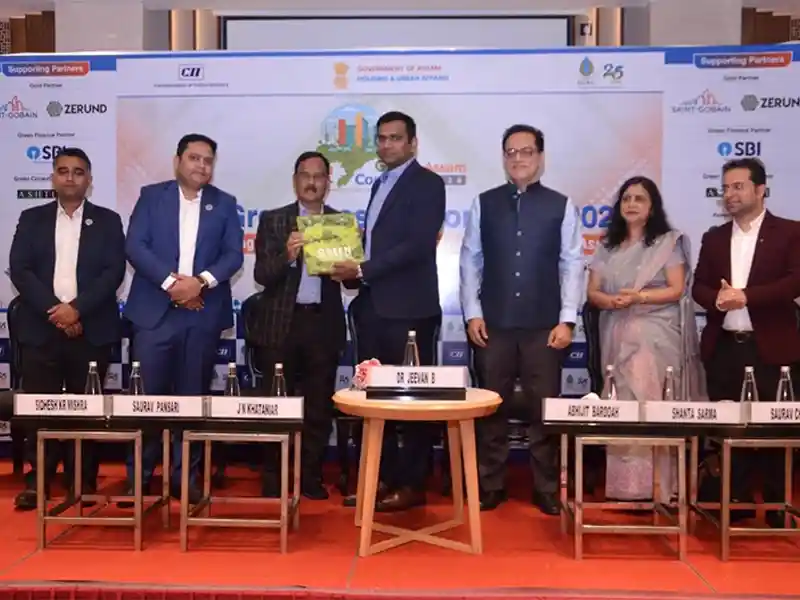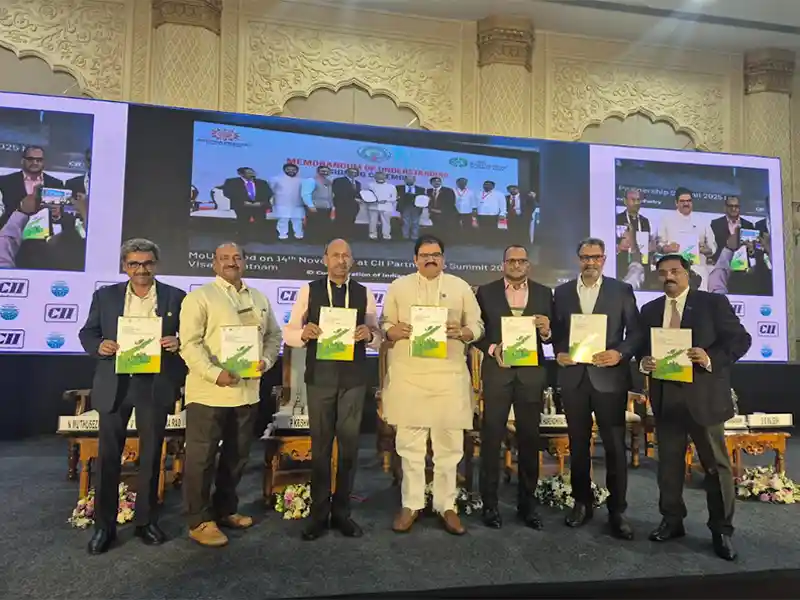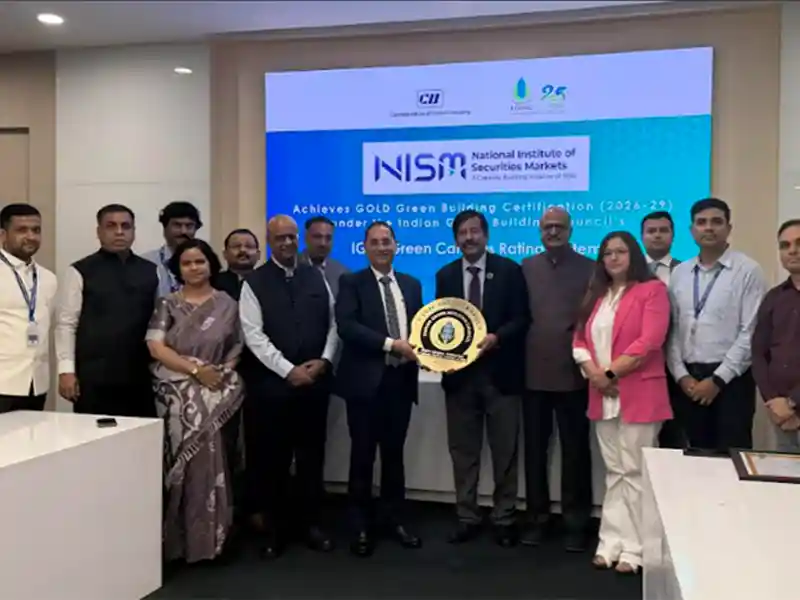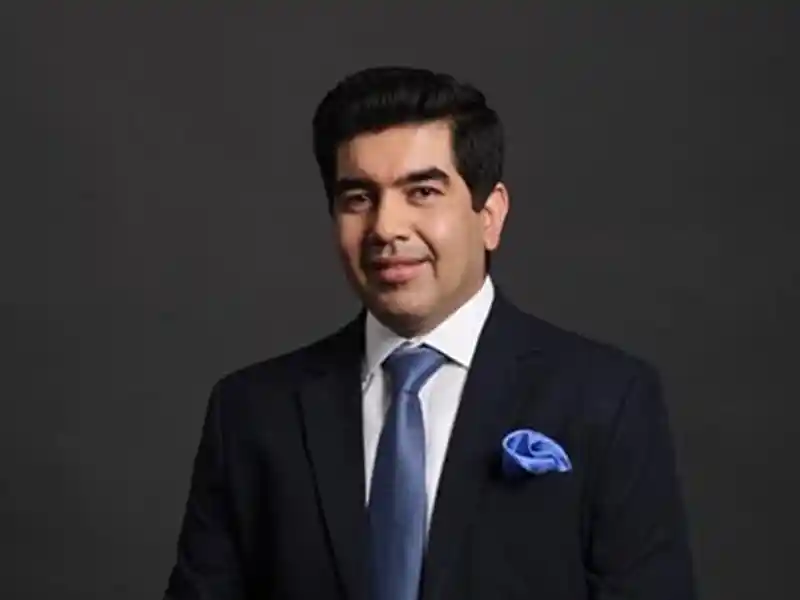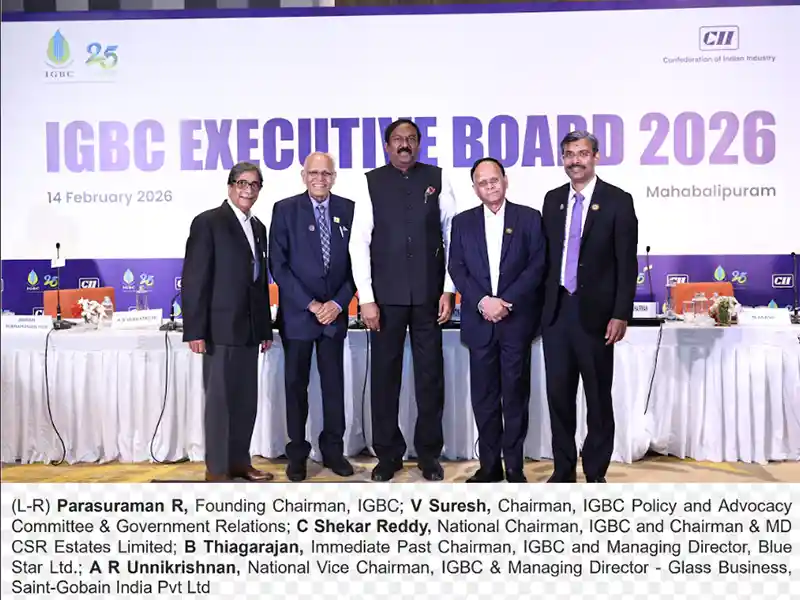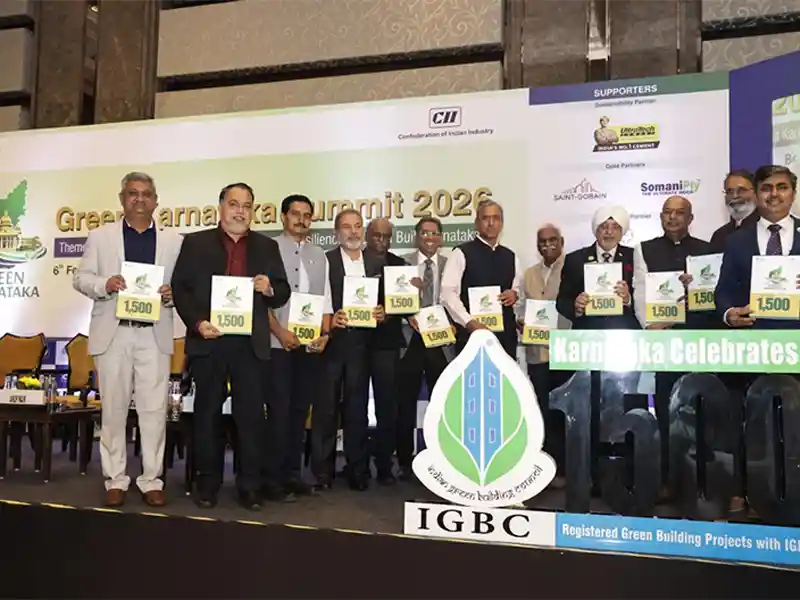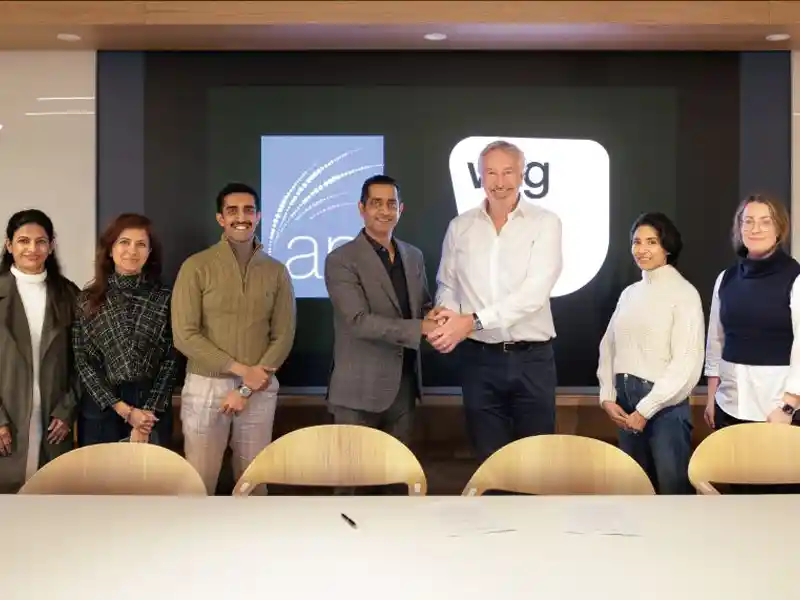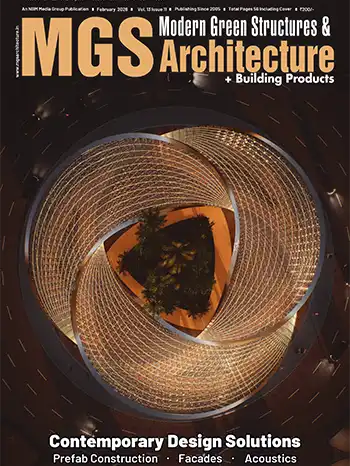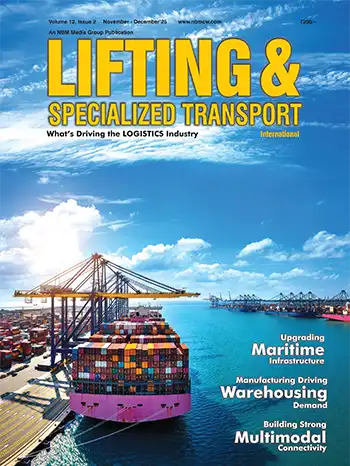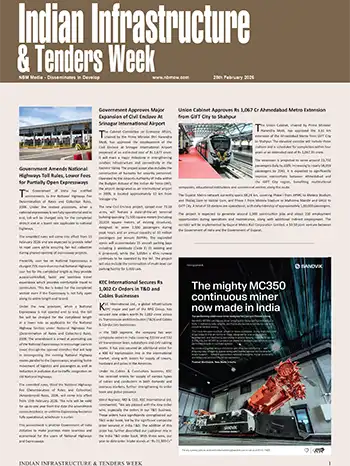The Grundfos AQpure system produces drinking water by filtering bacteria, viruses and particles from a raw water source. This solution processes water from surface bodies such as lakes, ponds, reservoirs and rivers by using ultrafiltration (UF) technology. AQPure plays an important role today, as it will help tap the potential of surface water and bridge the gap between water supply and demand. Grundfos AQpure is built on a modular concept allowing for customization of each AQpure system to the specific raw water quality. The power consumption of the system is very low, they can be operated on solar power and single phase grid power.
Grundfos AQpure system has received a stellar recognition from Jal shakti Ministry by empaneling it as an innovative technology (solar powered and automatic UF based water treatment system) for use under the iconic Jal Jeevan mission and Swachh Bharat mission. This will now be included in the list of recommended innovative technologies in the Department of Drinking water and sanitation’s innovation portal.
Applications:
Grundfos AQpure can operate as a stand-alone water treatment system or combined with Grundfos AQtap water dispensers in water kiosk applications. The water treatment system can also be used in apartment buildings, resorts and industries.
- Stand-alone drinking water production
- Water kiosks
- Apartment buildings
- Water factories
- Full adaptability from a modular concept
- Superior reliability in water production
- Cost effectiveness through pre-fabricated systems
- Automated and robust
- Self-adaptive control and cleaning
- Long service intervals for minimal downtime
- Remote monitoring through Grundfos Remote Management (GRM)
- Solar powered and minimal operation costs
- Easy installation
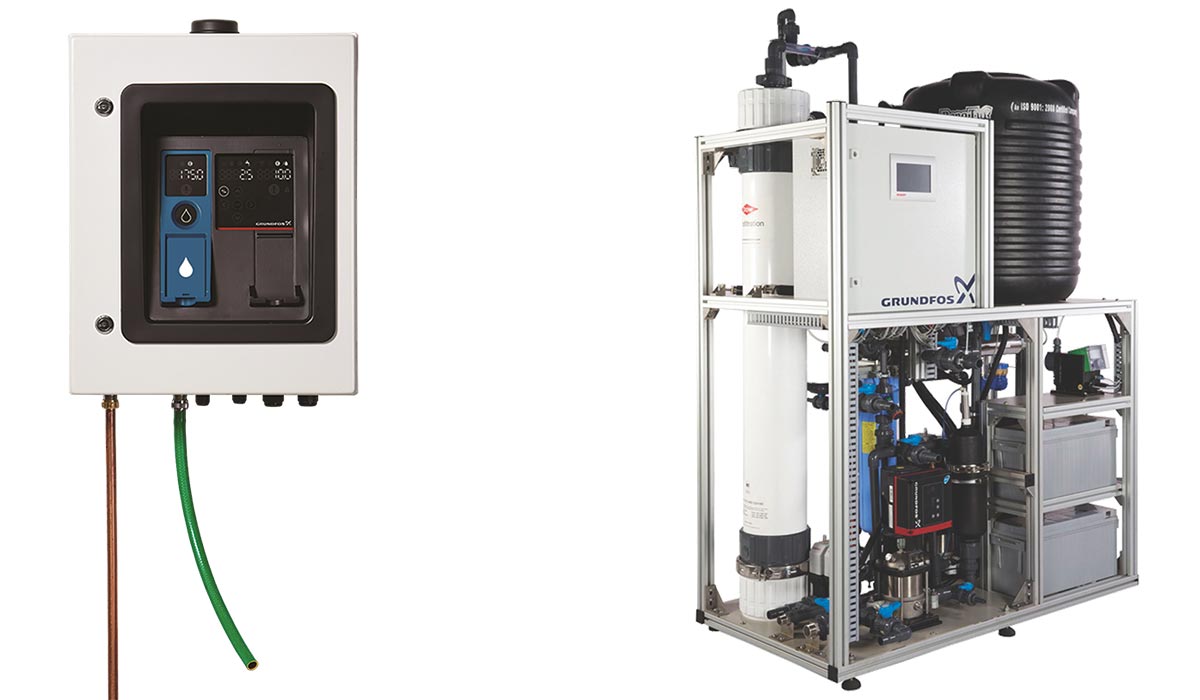
Grundfos’ AQap
Grundfos’ AQtap is a grid or solar-powered intelligent water ATM that ensures a reliable and sustainable water supply. AQtap acts a water dispenser, it has a robust construction, operates precisely all the while ensuring minimum wastage of water.
This technology often finds its additional benefit when coupled with AQpure. The AQtap system is a smart water management system that works through an integrated platform for revenue collection and online management of water kiosks, supports financial viability and accountability of water service operations and offers a view into effective drinking water management.
AQtap or ‘Water ATM’ is a kiosk that can be also used to distribute potable water. The water kiosk is connected to a water tank supplied by groundwater or treated surface water, post treatment using Grundfos pumps and AQpure water treatment system.
AQtap is an intelligent solution that can be connected to the existing water network or provided as part of a total Grundfos water supply solution. Through an integrated platform for revenue collection and online management of water points, AQtap supports the financial viability and accountability of water service operations.
In 2020, a small village, Hingalganj in the West Bengal was severely affected by the cyclone Amphan. Grundfos solar-powered water treatment solution- AQpure and AQtap, facilitated 2,500 locals’ access to 10,000 litres of clean drinking water from the available surface water in this region. This system has been in use since November 2017. Eight more systems are in operation in 24 North and South Parganas in West Bengal providing access to water to about 15,000 people.

